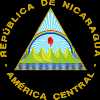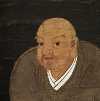 This festival to honor the moon goddess is a national holiday in China and a day celebrated in Asian communities all over the world. Family reunions are traditional on this day. People travel long distances to be together for exchanging presents, feasting, and eating moon cakes, which in their roundness are symbolic of family unity. Some are made of lotus seed paste, some of red bean paste, and some have a duck egg in the center. There are varying versions of the origins of the festival; the most accepted is that the day is a harvest festival at a time when the moon is brightest. Discuss
This festival to honor the moon goddess is a national holiday in China and a day celebrated in Asian communities all over the world. Family reunions are traditional on this day. People travel long distances to be together for exchanging presents, feasting, and eating moon cakes, which in their roundness are symbolic of family unity. Some are made of lotus seed paste, some of red bean paste, and some have a duck egg in the center. There are varying versions of the origins of the festival; the most accepted is that the day is a harvest festival at a time when the moon is brightest. Discuss
Source: The Free Dictionary
 In
In  This most important feast of the
This most important feast of the  At the Botamochi Temple in Kamakura, Japan, this festival honors St.
At the Botamochi Temple in Kamakura, Japan, this festival honors St. 
 Every two years, the main piazza in
Every two years, the main piazza in .jpg) The founding of
The founding of  The Greek word
The Greek word  A declaration of independence was made by Pedro di Alcântara (1798-1834) on this day in 1822. Brazil had been a
A declaration of independence was made by Pedro di Alcântara (1798-1834) on this day in 1822. Brazil had been a  Independence Day is a national holiday in
Independence Day is a national holiday in